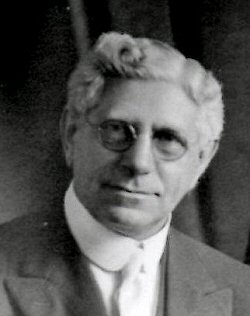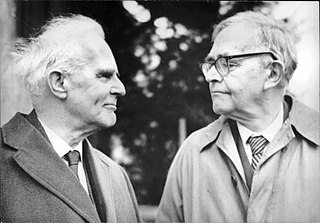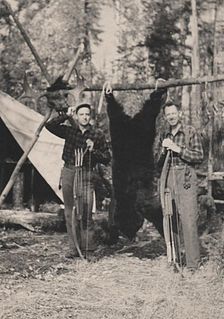A Quote by Louis Berkhof
It does not seem proper to speak of one attribute of God as being more central and fundamental than another; but if this were permissible, the Scriptural emphasis on the holiness of God would seem to justify its selection.
Related Quotes
An atheist is someone who is certain that God does not exist, someone who has compelling evidence against the existence of God. I know of no such compelling evidence. Because God can be relegated to remote times and places and to ultimate causes, we would have to know a great deal more about the universe than we do now to be sure that no such God exists. To be certain of the existence of God and to be certain of the nonexistence of God seem to me to be the confident extremes in a subject so riddled with doubt and uncertainty as to inspire very little confidence indeed.
Wrath, unlike love, is not one of the intrinsic perfections of God. Rather, it is a function of God's holiness against sin. Where there is no sin, there is no wrath-but there will always be love in God. Where God in His holiness confronts His image-bearers in their rebellion, there must be wrath, or God is not the jealous God He claims to be, and His holiness is impugned. The price of diluting God's wrath is diminishing God's holiness.
It is not the being seen of men that is wrong, but doing these things for the purpose of being seen of men. The problem with the hypocrite is his motivation. He does not want to be holy; he only wants to seem to be holy. He is more concerned with his reputation for righteousness than about actually becoming righteous. The approbation of men matters more to him than the approval of God.
Only at the cross of Christ does man see fully what it is that separates him from God; yet it is here alone that he perceives that he is no longer separated from God. Nowehere else does the inviolable holiness of God, the impossibility of overlooking the guilt of man stand out more plainly; but nowhere else does the limitless mercy of God, which utterly transcends all human standards, stand out more clearly and plainly.
What is sin? It is the glory of God not honored. The holiness of God not reverenced. The greatness of God not admired. The power of God not praised. The truth of God not sought. The wisdom of God not esteemed. The beauty of God not treasured. The goodness of God not savored. The faithfulness of God not trusted. The commandments of God not obeyed. The justice of God not respected. The wrath of God not feared. The grace of God not cherished. The presence of God not prized. The person of God not loved. That is sin.
Except during my childhood, when I was probably influenced by Michelangelo's Sistine Chapel depiction of God with a flowing white beard, I have never tried to project the Creator in any kind of human likeness. The vociferous debates about whether God is male or female seem ridiculous to me. I think of God as an omnipotent and omniscient presence, a spirit that permeates the universe, the essence of truth, nature, being, and life. To me, these are profound and indescribable concepts that seem to be trivialized when expressed in words.
If asked to sketch a picture of the typical archer I would be hard put. They seem to come in all shapes, sizes, colors and backgrounds. Inwardly they seem to have in common a love for the outdoors, a reverence for wildlife, and a close tie with history. There is nothing they seem to enjoy more than telling tall tales around a campfire or talking about archery to others. It would be difficult to find a more interesting group of people.
Some care is needed in using Descartes' argument. "I think, therefore I am" says rather more than is strictly certain. It might seem as though we are quite sure of being the same person to-day as we were yesterday, and this is no doubt true in some sense. But the real Self is as hard to arrive at as the real table, and does not seem to have that absolute, convincing certainty that belongs to particular experiences.

































